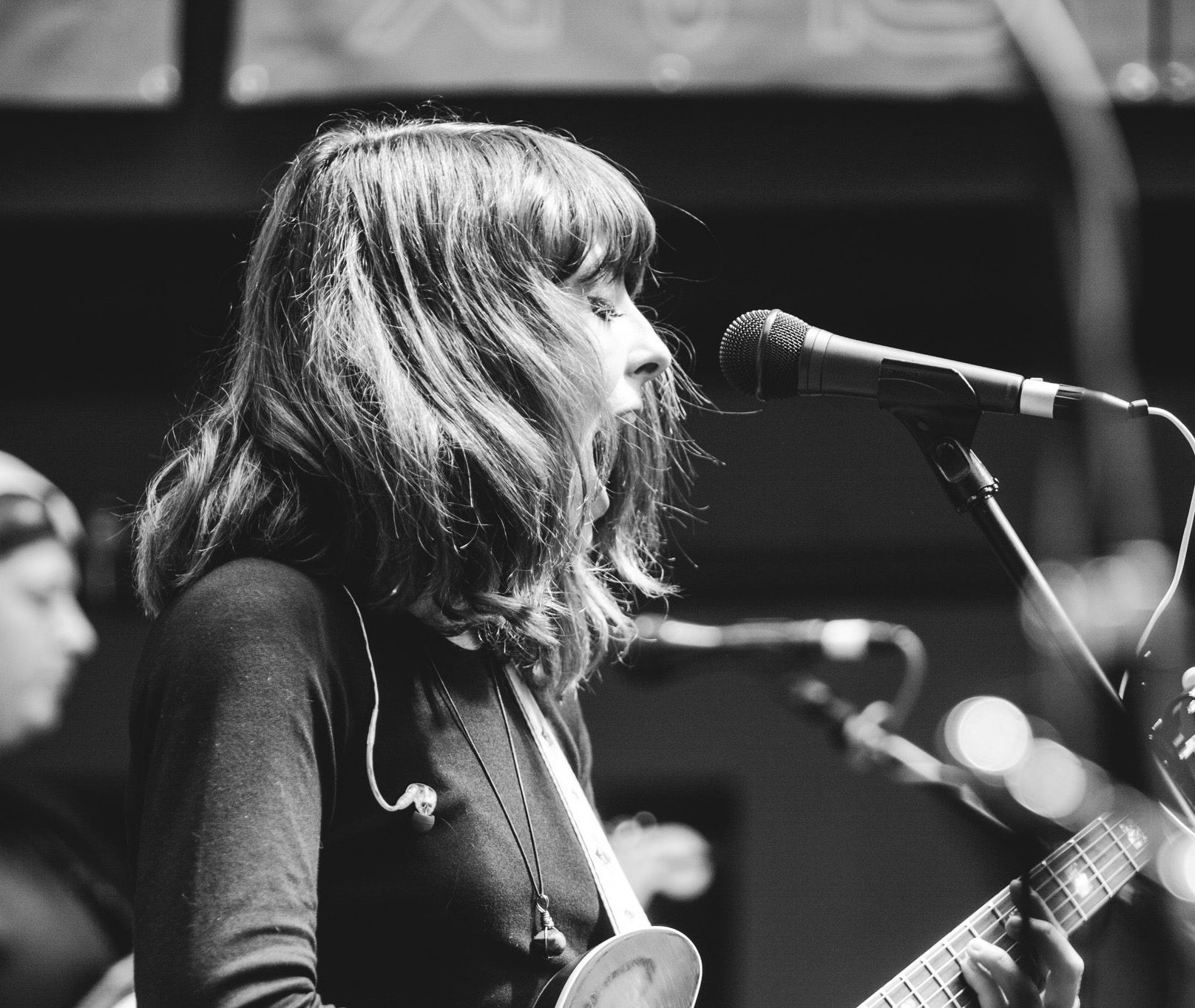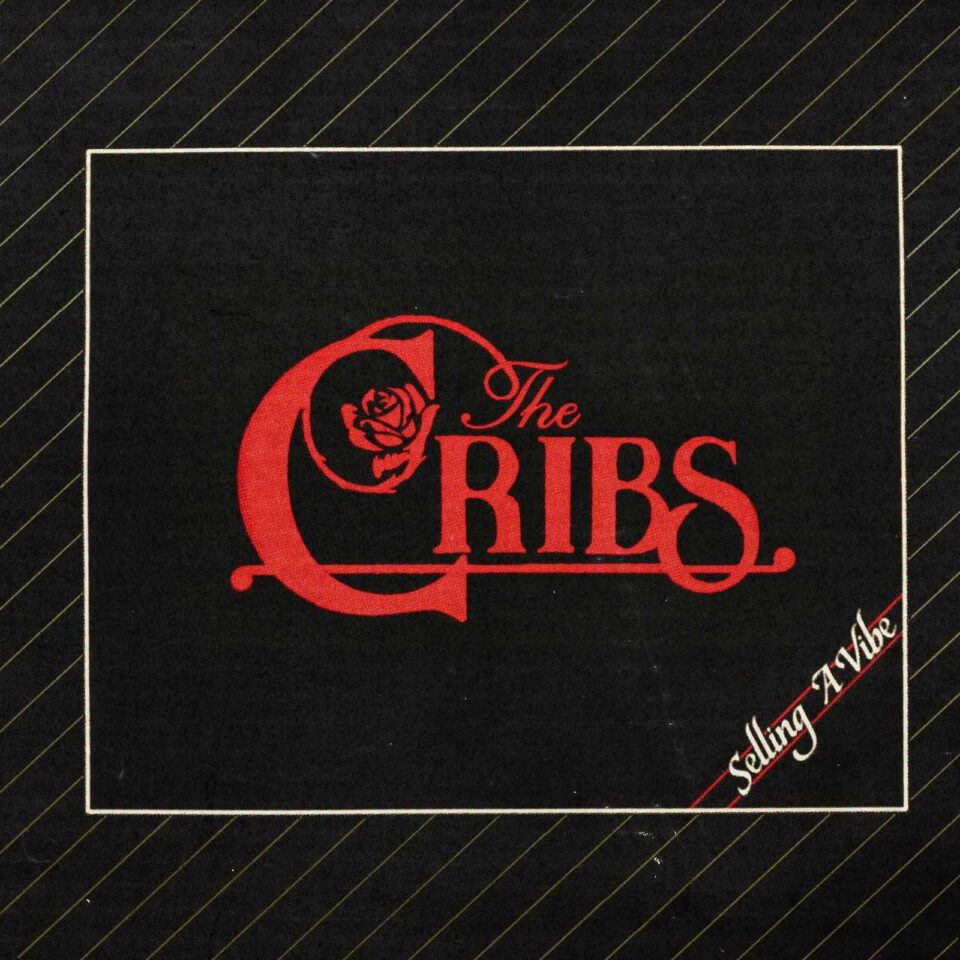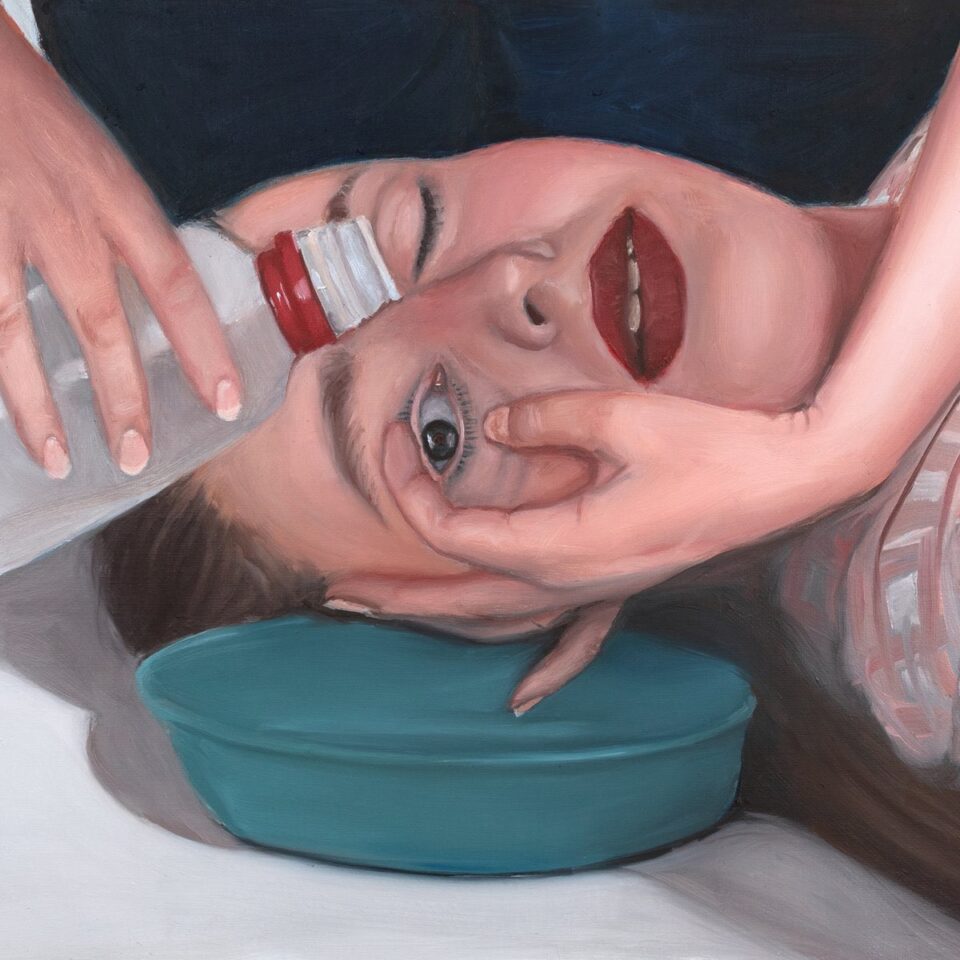“I’ve only really just begun to appreciate my community,” says Frances Quinlan. “I’ve been in Philly for eleven years, and this is the first time I’ve lived on a block where I feel a connection with my neighbors, where I say ‘hello’ and have conversations.”
It’s the beginning of November, and the thirty-three-year-old Hop Along frontwoman is sitting in her living room, having just come from voting in a local election. She’s originally from North Jersey, and while careful to emphasize that she’s not a native Philadelphian, the affection for her adopted hometown is evident. “Philly is an incredible city full of people doing their best, who’ve lived here all their lives, and who want it to be a happy, healthy place. It’s cool to be around that.”
Quinlan’s new album, Likewise, is set for release January 31, and while fans might regard it as her debut solo effort, that distinction actually belongs to 2005’s Freshman Year. Credited to Hop Along, Queen Ansleis, the self-released album—recorded in her parents’ basement—now serves as an overture to the spectacular trio of Hop Along albums that followed. Though a few friends played drums and banjo on some tracks, the record was effectively a solo endeavor, and if it doesn’t sound like one, that’s by design. “I just wanted so badly for it to sound like a band,” she laughs, “so I literally played bells and whistles, and tried to make it sound like more than just me.”
A decade later, Quinlan supervised a new vinyl pressing of Freshman Year, which proved tricky—though it wasn’t nearly as nerve-wracking as the initial release. “I was stamping burned CDs,” she recalls, “and the stamp I’d made was so bad, I decided to paint back onto the CDs with the same ink and a brush, because I wanted so badly for them to be special, to have meaning for people.” She has no idea how many of those hand-made treasures exist, but in the fifteen years since she assembled that first recording, she’s still enamored with experimentation.
On Likewise, Quinlan enlisted the help of longtime bandmate and producer Joe Reinhart, who helped her flesh out the arrangements, and she’s animated as she describes the sessions. “Collaboration is so different when it’s you, the songwriter, and a producer, and you’re kind of producing together,” she explains. “For this project, we could do whatever we wanted—I even play drums on a couple of tracks,” she laughs before admitting, “I can’t play bass.” The pair’s crackling chemistry is apparent in every note, and across nine songs, a bevy of strings, chorals, and electronic elements telepathically track Quinlan’s magical, mercurial cadence.
“I don’t think it’s a hopeless record, by any means. But I do think it’s a challenge to speak your mind to the people you’re closest to.”
As a lyricist, Quinlan is a poet, and reading through the verses which comprise Likewise, it’s tempting to see the tracks as a loosely connected narrative. Squint, and you can make out the telemetry of a rocky relationship. But Quinlan says the stories here are all abstract bits—which isn’t to say there’s no overarching theme. “A common thread would be attempts at discourse between loved ones,” she explains. “The people you’re closest to, you want them to understand you the most, right? And that can be so harrowing. It’s a hard thing to let go of who you were before, and not feel a sense of regression, not feel held back by the perception that others have of you. I don’t think it’s a hopeless record, by any means. But I do think it’s a challenge to speak your mind to the people you’re closest to.”
On lead single “Rare Thing,” she recalls a surreal dream where barbs like, “I know there is love that doesn’t have to do with taking something from somebody” sting against a stippled synth. For “Detroit Lake,” she conjures images of a hawk striking prey, blooming algae, and words left unspoken, while the plaintive notes of “A Secret” mirror her lyrics’ portrait of geographical and emotional distance. At times, the syncopation between her vocals and the instrumentation is so effortless that it feels like she’s dynamically bending the instruments to her will. During the sessions, “I was thinking, in a different way, what the song needed,” Quinlan says. “I had no concrete, instrumental goal, and that kind of left the songs room to really wander and get strange.” She may call them “strange,” but overall the tracks are compulsively captivating, and with the spotlight on her fantastic voice, it seems like she’s present in any room where they’re played.
Likewise closes with a cover of Built to Spill’s “Carry the Zero,” a song Quinlan has adored for years. As she relays that Doug Martsch is “cool” with her interpretation, our conversation shifts to the singers who’ve influenced her, and after quickly citing Kate Bush, Fiona Apple, and Neutral Milk Hotel’s Jeff Mangum, she turns pensive. “It’s tough, because you have people you love, but you’ll never in a million years sound like,” she considers. “There are so many vocalists I revere, that I wish I could emulate. Ani DiFranco was a tough one. I tried so hard to sound like her for years, that it was hard to hear myself, or how I really sounded.”
Today, it’s clear her failure to imitate DiFranco is a victory for her listeners—because despite years of exploration, Frances Quinlan still sounds like no one else. FL







